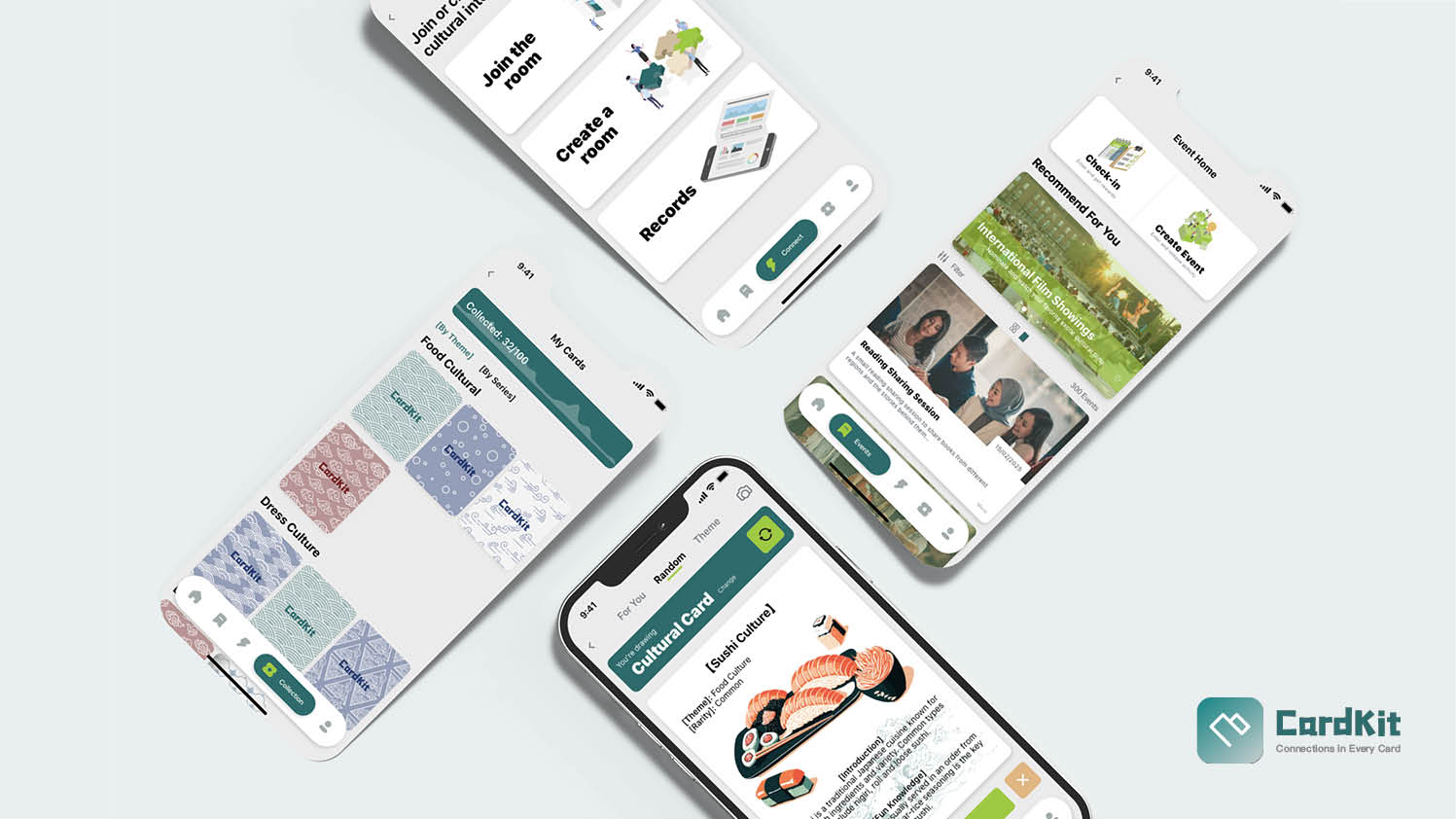
CardKit
A card-based social tool app designed to spark cultural exchange and break the ice — helping you build meaningful, multicultural connections through real-life encounters on campus.
January 2025|London · England · United Kingdom
Introduction|
In today’s increasingly multicultural campus environments, cross-cultural communication barriers, lack of belonging, and fragmented social circles have become pressing issues between international and local students.
CardKit is an interactive tool-based app designed for diverse university communities. Through lightweight cultural task cards, AR-based exploration, and interactive rooms, it encourages students to discover both the differences and commonalities across cultures, and to build a warm, inclusive network of real-life connections.
The project focuses on service design × intercultural interaction × gamified engagement, using playful methods to facilitate understanding and integration. Ultimately, CardKit aims to help every student feel seen, heard, and included within their campus life.
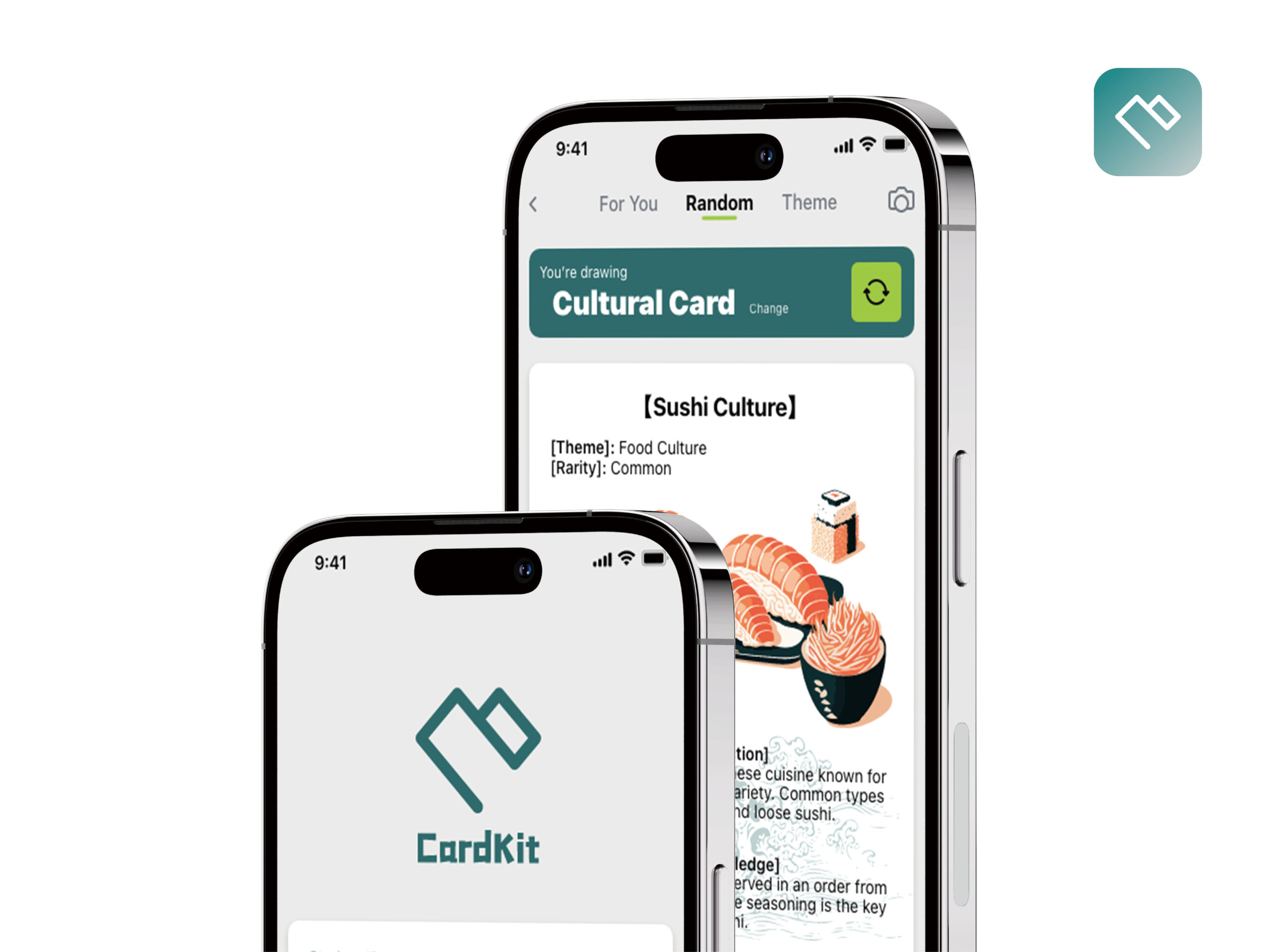
Design Keywords|Service Design / Cross-cultural Communication / Social Integration / Gamification / User Engagement / AR Interaction / Cultural Task Cards / Inclusivity / Sense of Belonging / Community Connection
Design Goals and Concepts|
Addressing cultural fragmentation on multicultural campuses
Inspired by cultural communication, interactive games, and intercultural practices
Gamified mechanisms to guide social interaction
Encouraging real-life encounters and breaking social barriers
In the design, we intentionally reduce high-pressure social expectations, and instead guide students through consensus-based tasks and cultural contrast cards to foster relationship-building through real-life interaction.
This creates a gradual social experience that moves from “light connection → micro resonance → deep identification”.
The core idea of CardKit can be summed up in one line: Build resonance through cards, sustain connection through mechanisms.
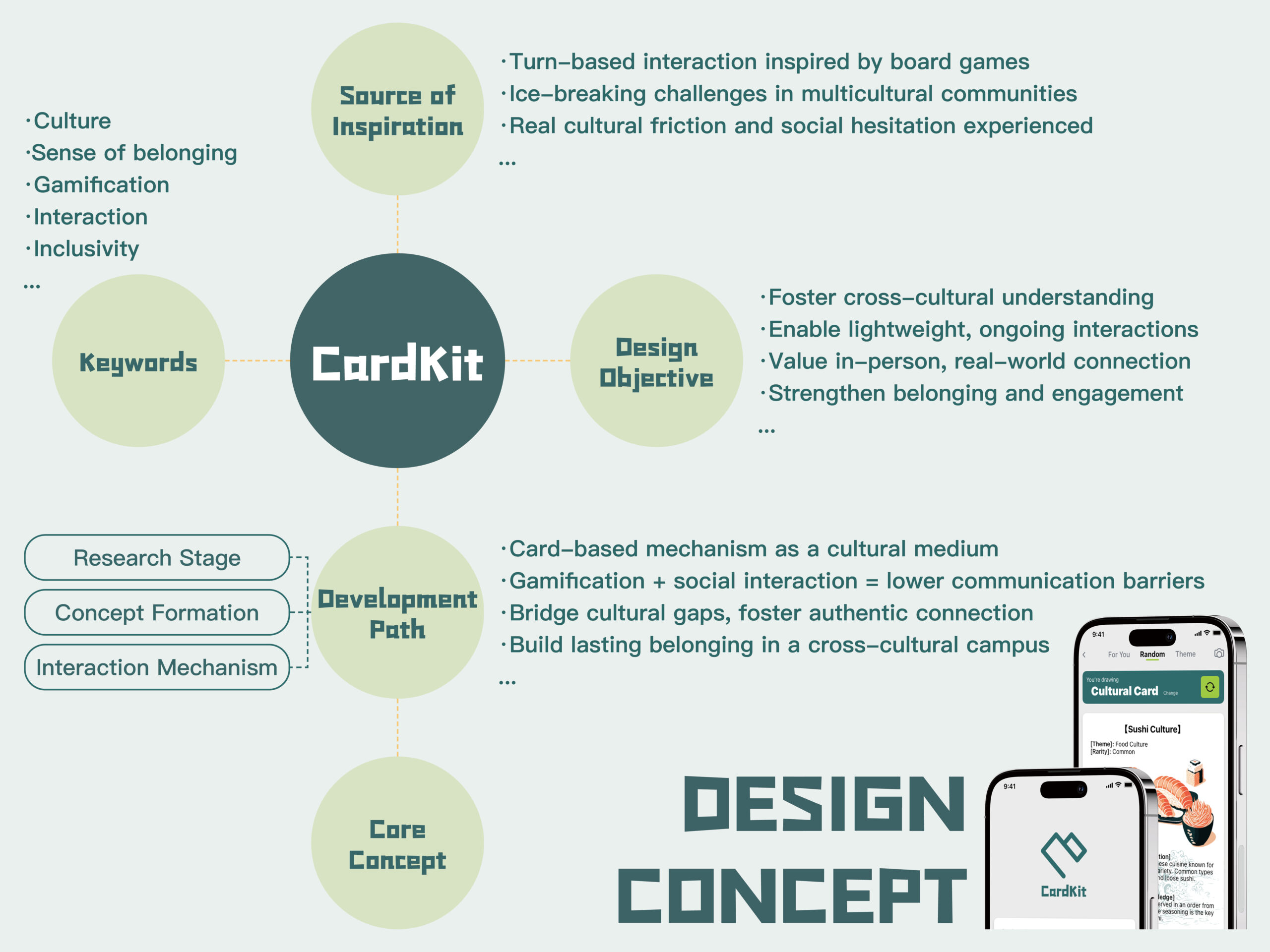
User Research and Insights|
LCC Diverse Campus Observation |
LCC, as a multicultural campus, is a valuable environment for cultivating cultural understanding and a global mindset. However, the limitations of existing social formats highlight the need for a more interactive, engaging, and emotionally resonant medium — one that can break down cultural barriers and inspire authentic cross-cultural connection and a lasting sense of belonging.
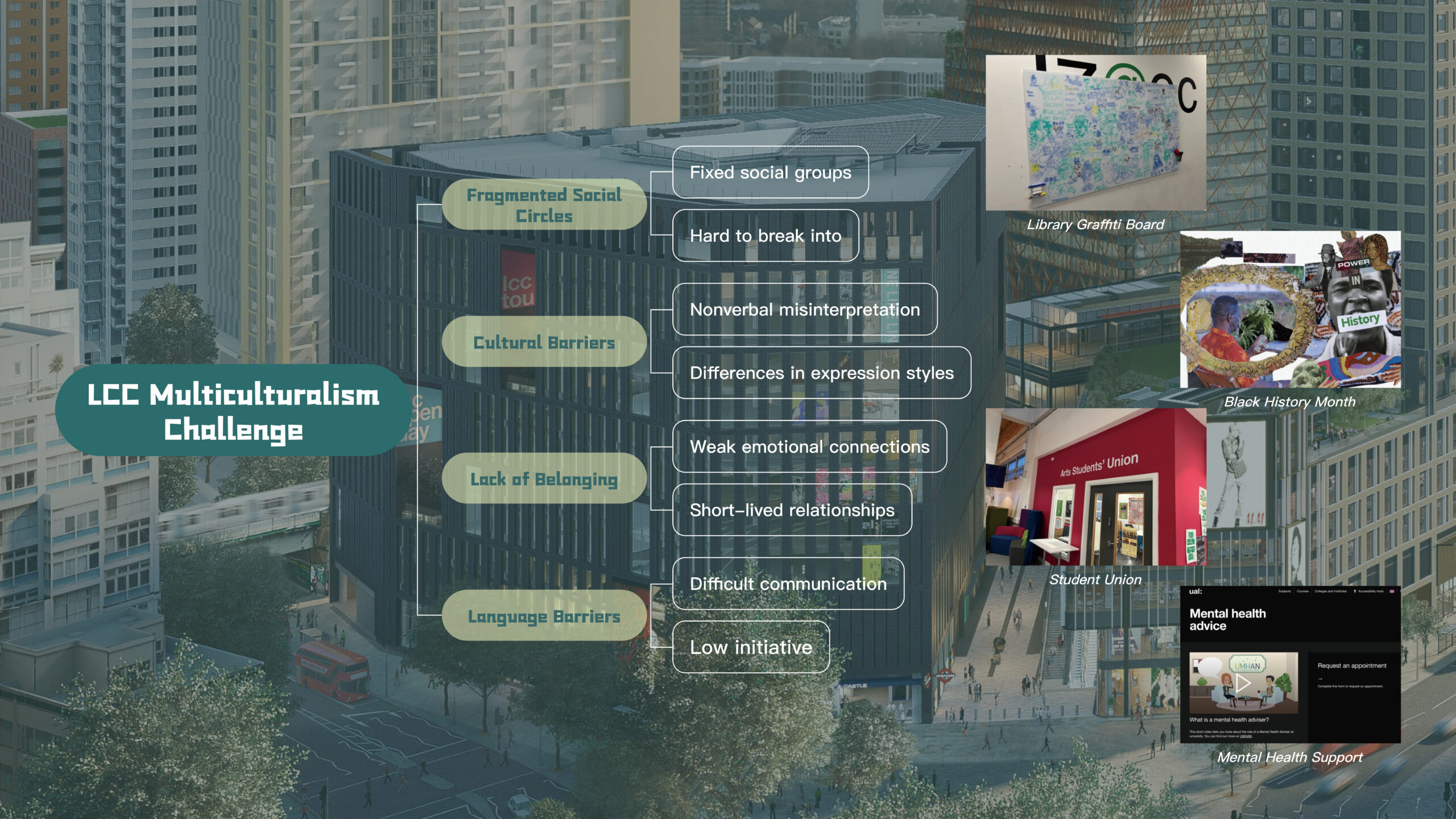
User Research|
Through on-campus observations, surveys, and one-on-one in-depth interviews, I explored the real interaction barriers and emotional experiences of students in a multicultural environment.
Key Insights|
Psychological safety matters more than information access
Task-based interactions are more effective than language-led conversations
Most students long to be approached, but struggle to take the first step
Note: To protect participant privacy, no photos are shown. Only selected quotes and insight summaries are presented.
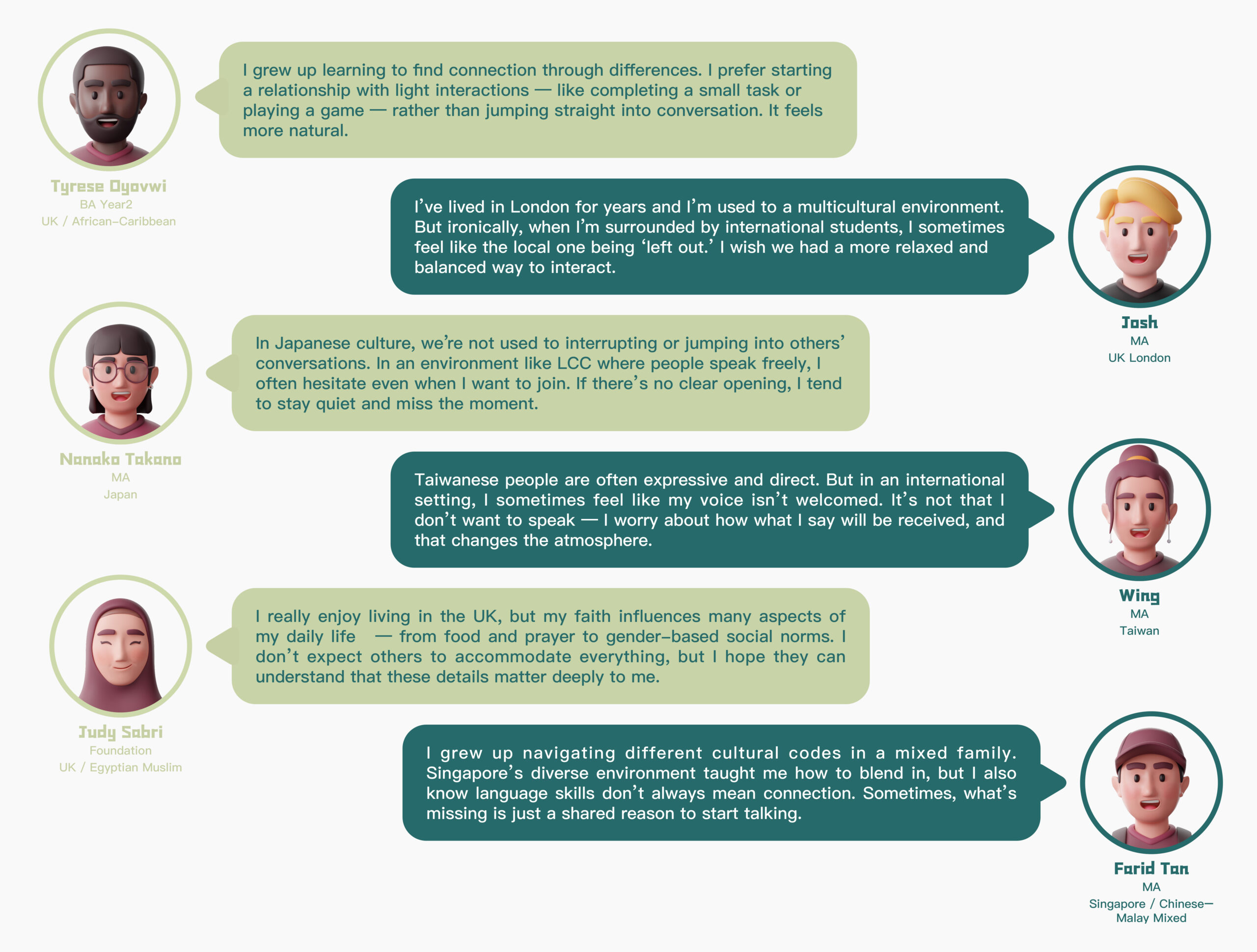
Workshop|
During the early phase of mechanism development, we conducted a co-creation workshop themed “Unity in Diversity”, collaborating with students from diverse cultural backgrounds to test the appeal and adaptability of task design and interaction models.
Workshop Goals: To explore real-life “interaction triggers”, and validate whether the task cards were both engaging and practically executable.
Workshop Process:
Cultural Symbol Wall|Participants expressed their cultural identities using stickers, photos, and handwritten notes, visualizing the diversity of cultural footprints.
Campus Map Co-mapping|Students marked areas within LCC where they felt a sense of belonging, and identified gaps in cultural inclusion (e.g. limited food options, lack of prayer space).
Cultural Pathway Mapping|In small groups, participants co-designed imaginary “cultural exchange paths” — one group focused on cultural representation, while the other emphasized cooperation and shared mechanisms.
Participant Feedback:
Most students felt that interactive tasks sparked more authentic connection than static spatial installations.
“Doing something together” created a stronger sense of belonging than merely “showing cultural identity.”
Several participants suggested integrating this format into events like Welcome Week, orientation programs, or student society activities.


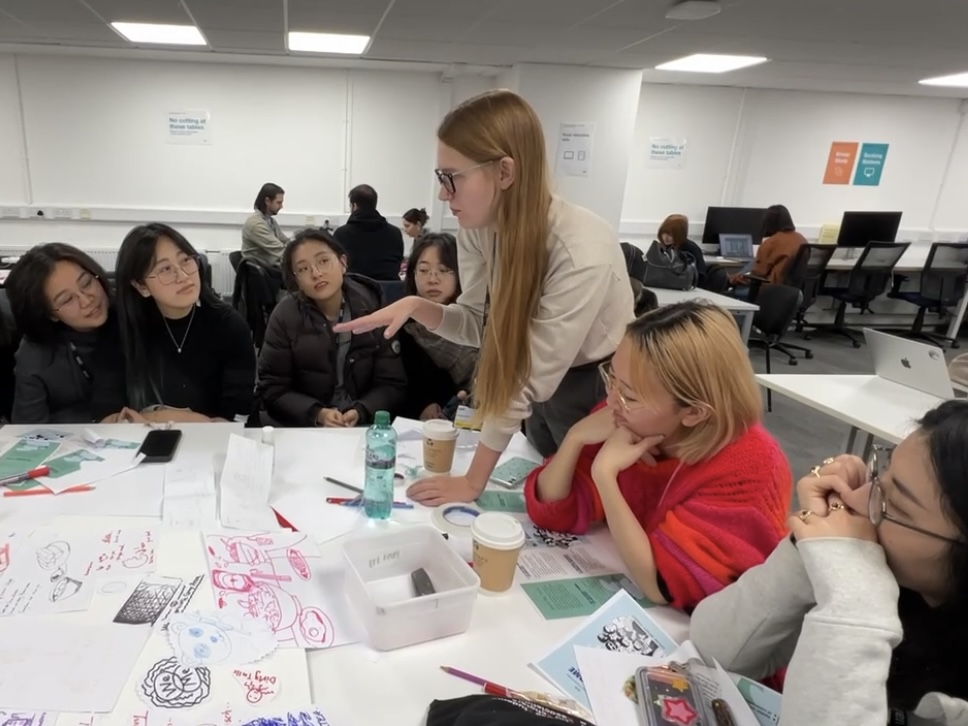
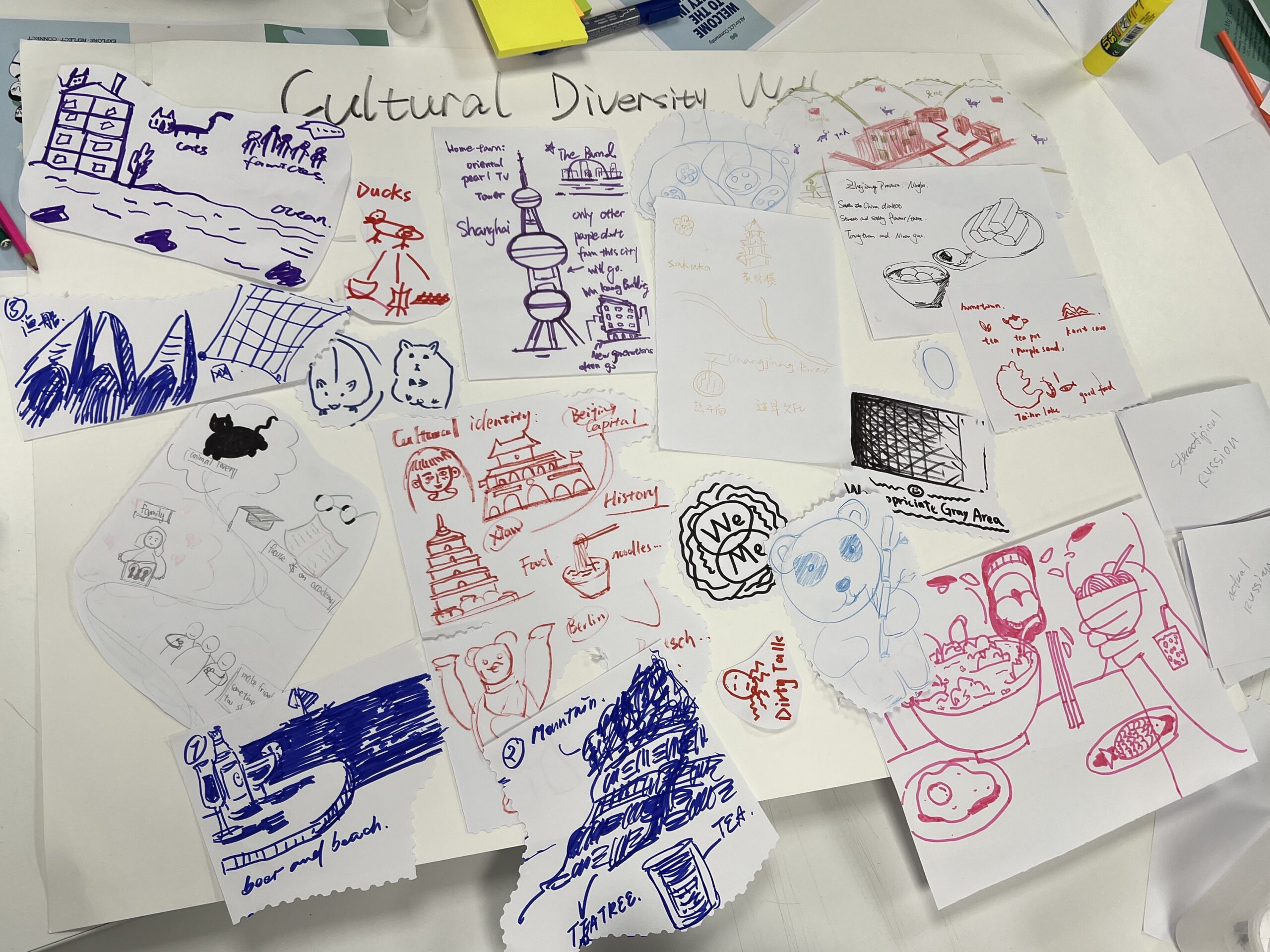
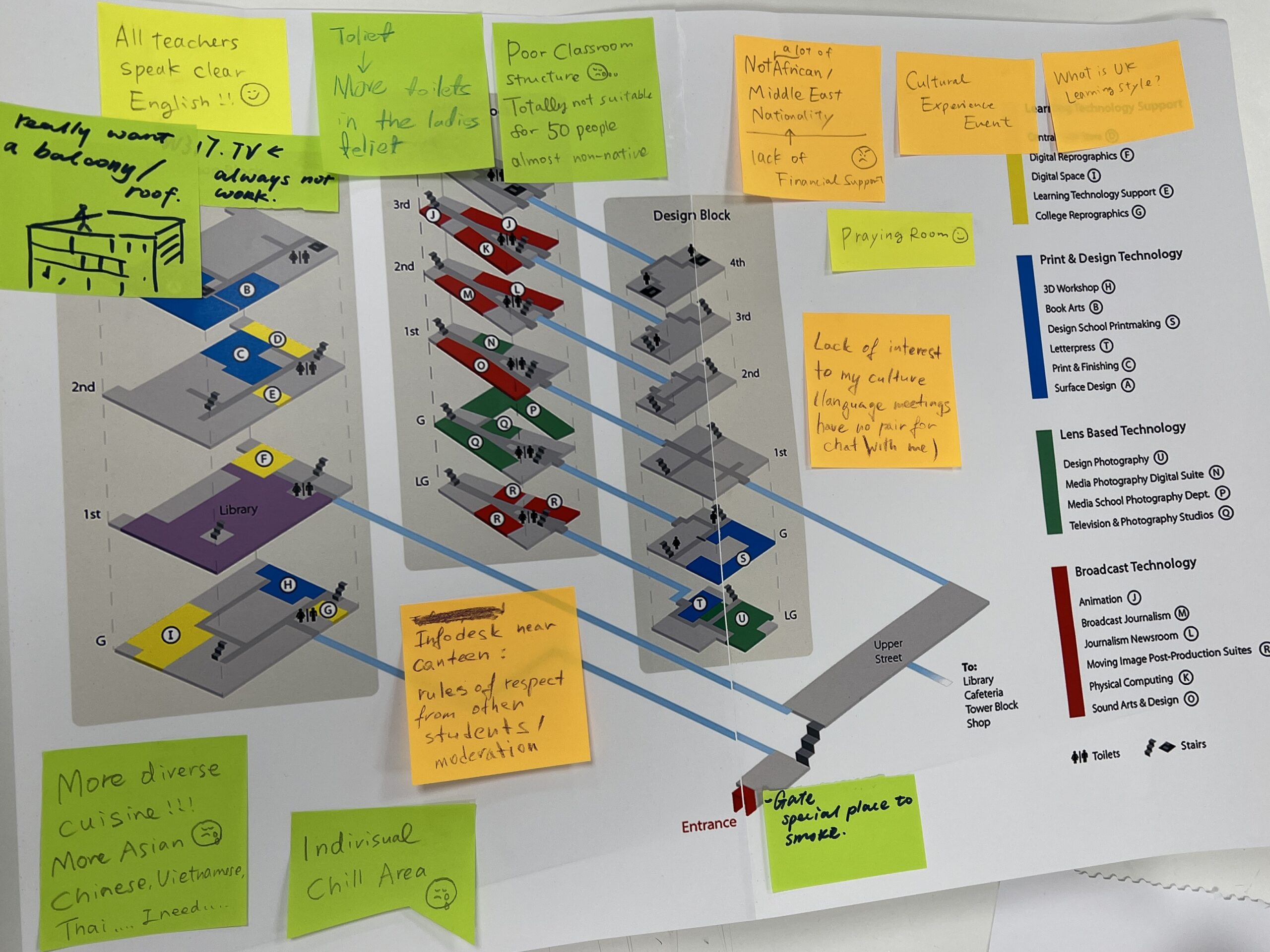
Concept Development|
Mechanism Design|
1. Turn-based Task Mechanism
The system operates on a turn-based logic, where each round prompts users to draw a card — either a Task Card or Question Card — that encourages a small, culturally meaningful action.
For example: “Say a holiday greeting in your native language.”
This mechanism reduces language pressure and creates a more natural starting point for social interaction.
2. Role-based Feedback & Rating System
Each interaction involves two roles: the Questioner and the Responder.
The Questioner rates the response based on quality or effort. Ratings not only affect the rarity of the card earned but also determine whether new content will be unlocked — encouraging meaningful participation and higher-quality engagement.
3. Continuous Incentives & Cultural Growth Path
After completing each interaction, users receive points, badges, or limited reward cards. These actions contribute to a personal growth record, visually displayed on their profile.
As users unlock more cultural milestones, they gain a stronger sense of participation and belonging.
4. Group Interaction within a Lightweight Social Structure
Beyond one-on-one tasks, users can join or create themed interaction rooms, completing rounds collaboratively with others.
Room hosts can curate and publish task content, fostering authentic connections through low-pressure cooperation — perfect for events like orientation weeks or student club activities.
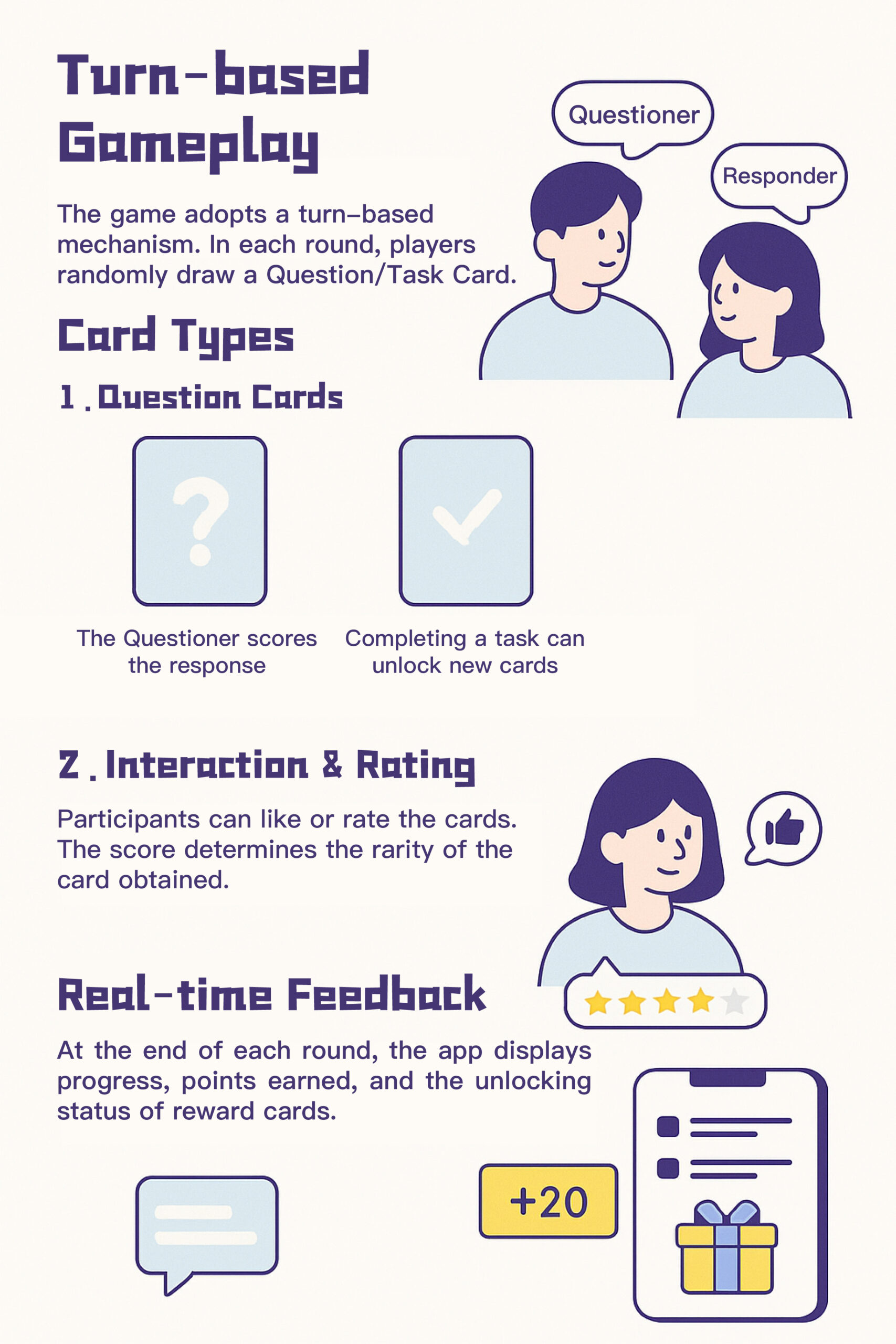
Sitemap|
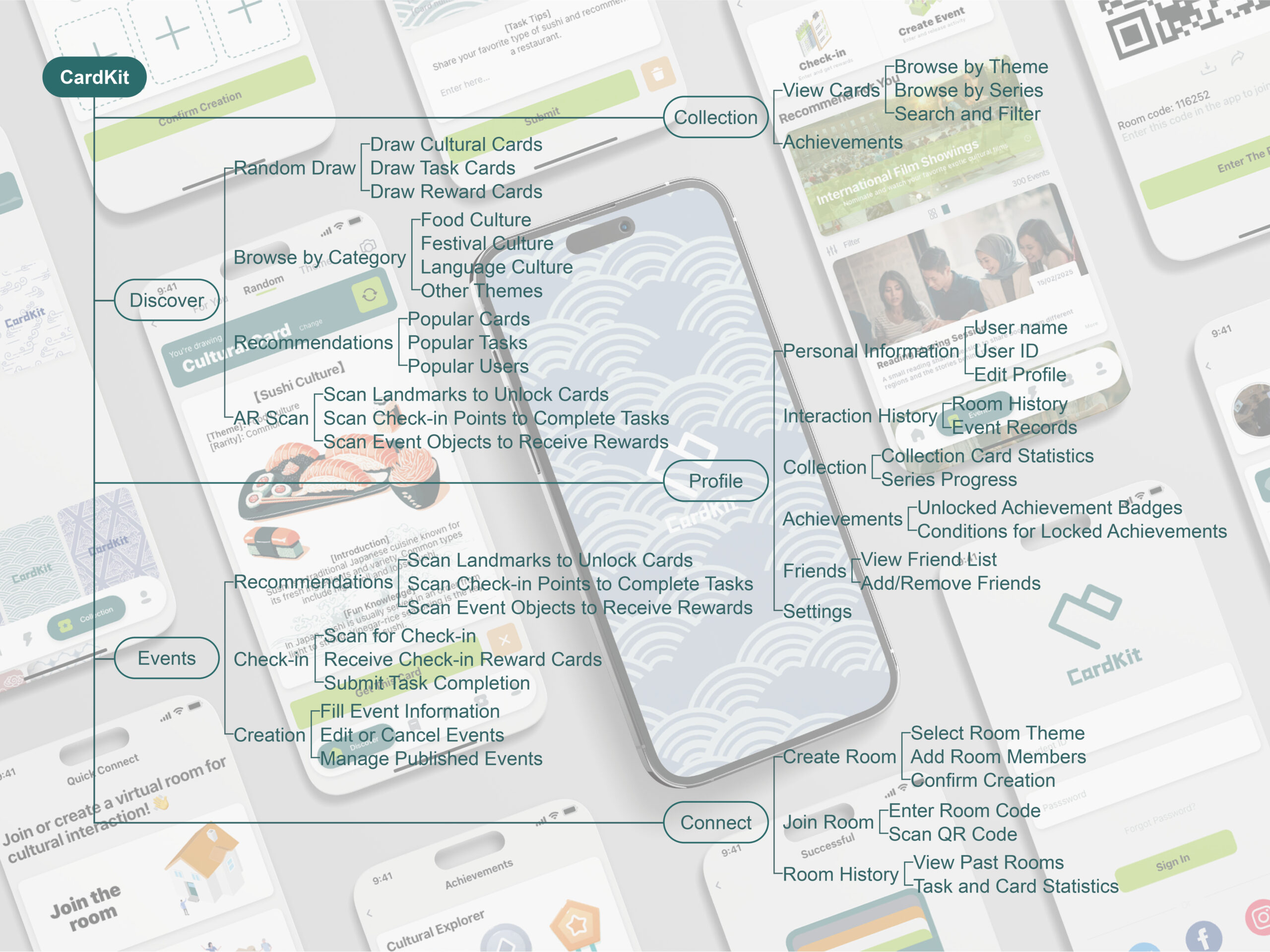
Lo-Fi Wireframe|
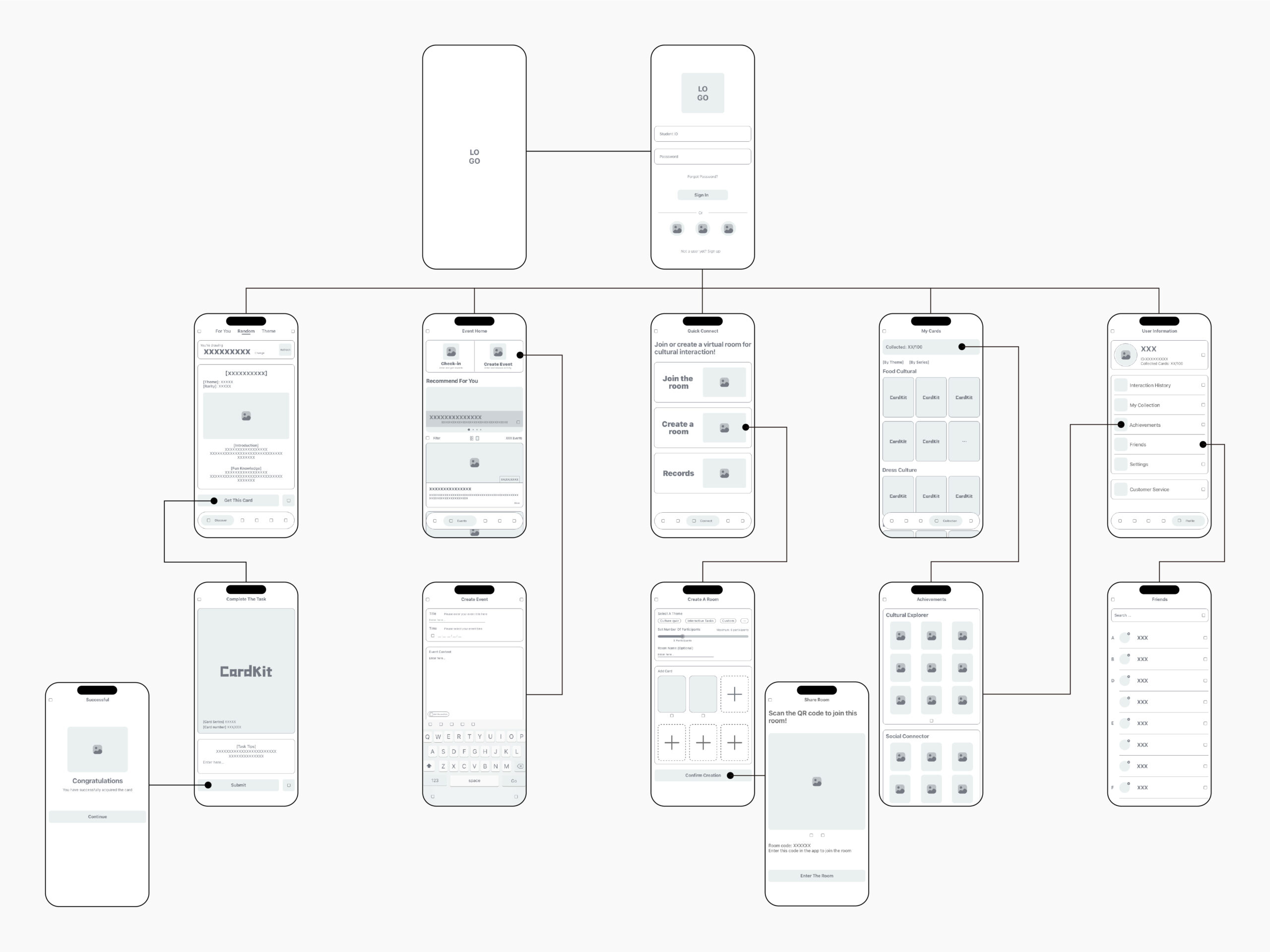
Visual Language System Design|
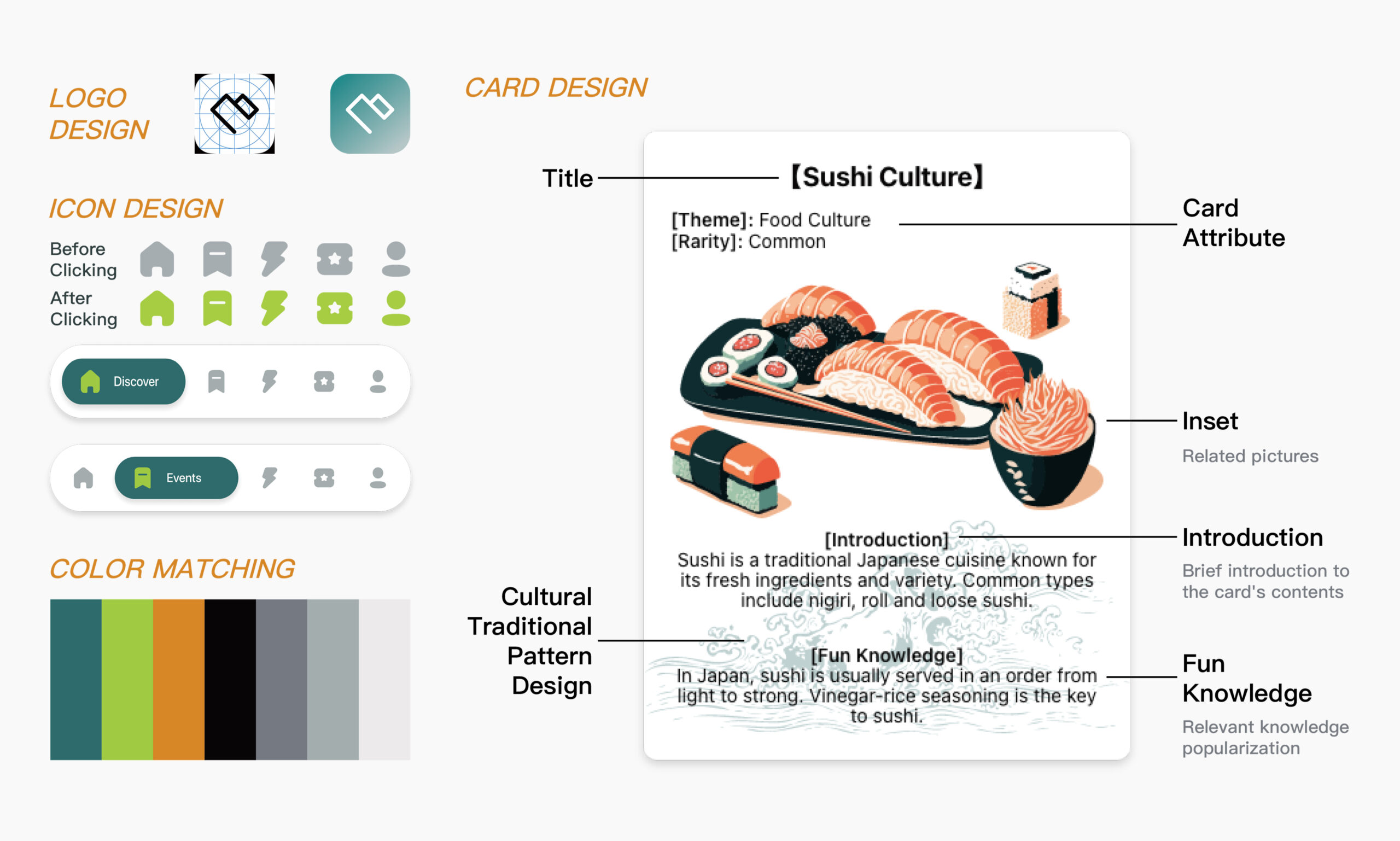
Application Scenarios|
Welcome Week Activities|Cultural card exchange for new student orientation
Campus Exploration Mini-Game|Scan to unlock location-based cultural tasks
Student Club Collaboration|Societies co-create and host themed task rooms
Integration with MyUAL / Campus App|Supports API-based system embedding
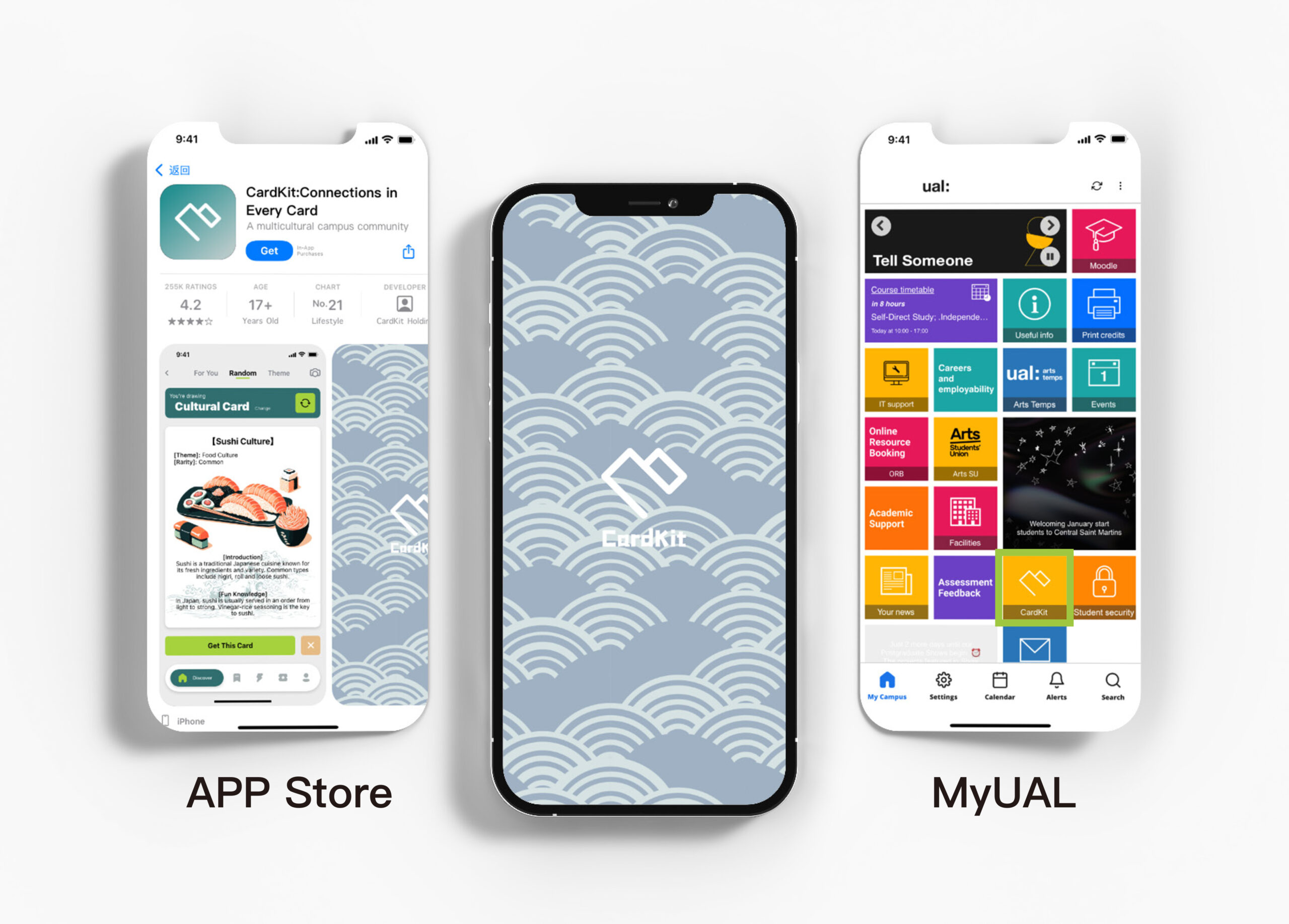
Download of Project Documentation|
Detailed Research Journal
Interested in the exploration of cultural uniqueness and belonging on a multicultural campus ? Feel free to download my Research Report, which includes the problem framework, academic references, user personas, and methodological foundations — providing full support for the system design.
Design Research Essay
A personal research essay focusing on multicultural campus dynamics and the ethics of service design, exploring topics such as cultural co-creation, systemic perception, and value positioning within design practice.
This document serves as an early-stage reflective journal, developed under the lens of design ethics, multiculturalism, and systems thinking. It traces the evolution of design concepts while integrating social observations with theoretical exploration.
CardKit Comms Package
If you’d like a quick overview of CardKit and its visual outcomes, feel free to download the Comms Package. It includes a project summary, co-creation process highlights, mechanism diagrams, UI showcases, and implementation outcomes.
End|
CardKit is more than just a social tool — it is a systemic response shaped by real campus life, cultural frictions, and the energy of co-creation.
In this project, we aimed to spark connection through cards, sustain relationships through mechanisms, and expand the space for empathy through design. The goal was never to create fleeting conversations — but to help users find their own cultural footing and social rhythm in every real-life encounter.
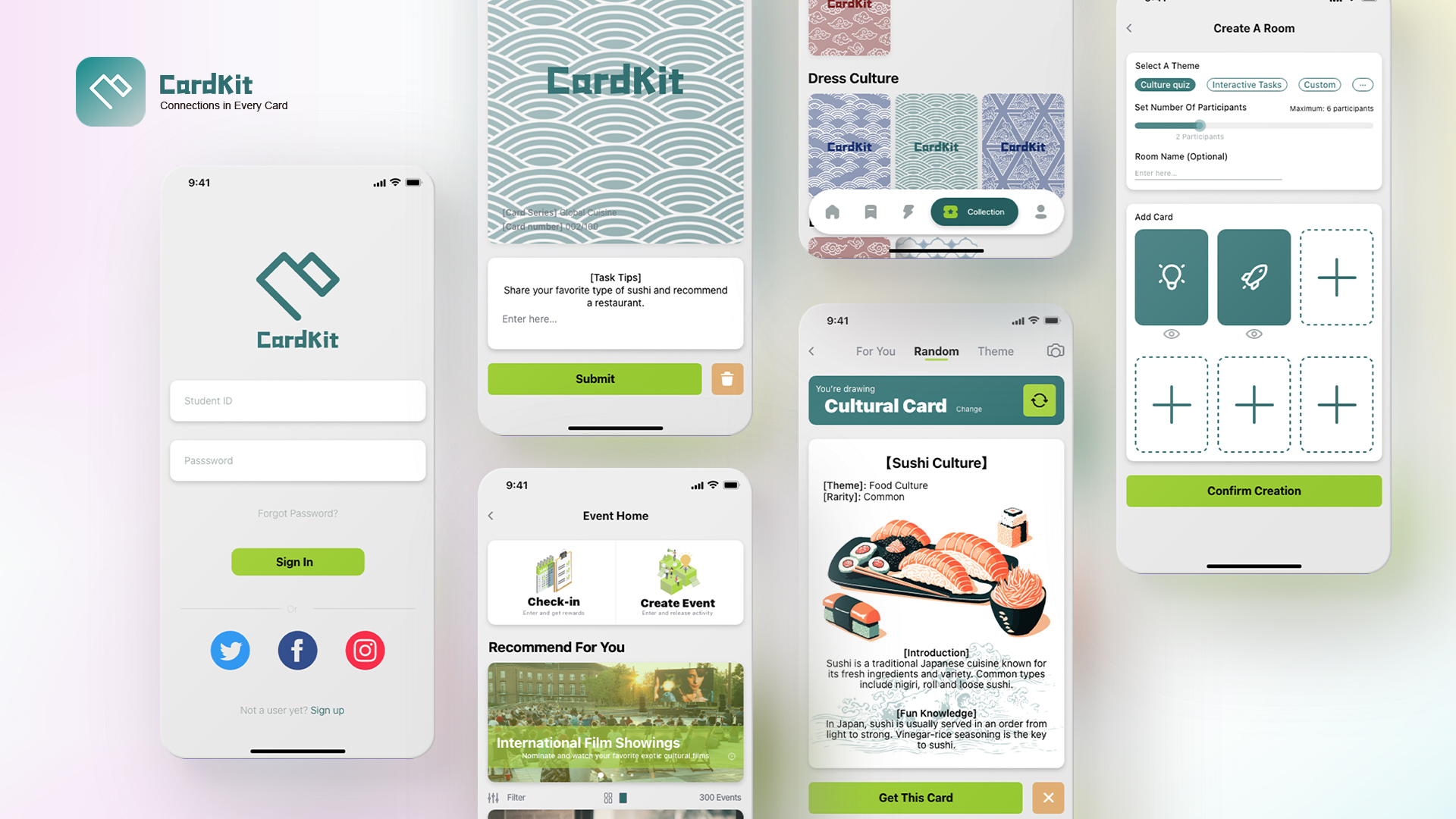
If this project resonated with you, or you’d like to collaborate — I’d love to hear from you.
📧 Email: [email protected]
📸 Instagram: har_rison0525